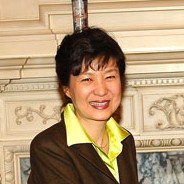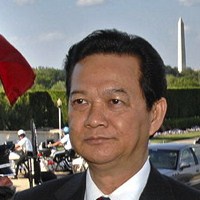The Uppsala Conflict Data Program (UCDP) has released its annual by-the-numbers update on the state of conflict worldwide, through the end of 2012, in the latest issue of the Journal of Peace Research. The combination of statistics and violence makes for unusually dismal reading, but nevertheless the authors have good news: “Overall, the 2000s has been the least conflict-ridden decade since the 1970s.” Last year in particular saw 32 armed conflicts around the world, five fewer than in 2011, where the authors define an “armed conflict” as one that “concerns government or territory or both where the use of armed […]
Asia-Pacific Archive
Free Newsletter

On Sunday, South Korean President Park Geun-hye returned from a four-day visit to China that Chinese Foreign Minister Wang Yi said heralded a new chapter in bilateral relations. While the trip led to a number of minor economic agreements between South Korea and China, the most important outcome was that it allowed Park and Chinese President Xi Jinping to develop their relationship. “The main accomplishment is it really offered South Korea an opportunity to forge political and strategic relationships with China without feeling that there were elements of betrayal or contradiction with the U.S.-Korea alliance, and so there’s a foundation […]

The recent announcement by the deputy commander of Russia’s Caspian fleet, Nikolai Yakubovsky, that Russia and Iran intend to hold a combined naval exercise in the Caspian Sea later this year should not have come as a surprise. Not only have the two sides engaged in such joint drills in previous years, but since the breakup of the Soviet Union, the new Russian Federation and the Islamic Republic have enjoyed a surprisingly harmonious relationship regarding regional security issues. The Iranian government has refused to intervene on behalf of the Muslim guerrillas fighting Moscow in Chechnya or in other parts of […]

Vietnam’s prime minister, Nguyen Tan Dung, recently survived a confidence vote in the National Assembly as well as severe pressure at the most recent party plenum. As prime minister of a country ostensibly ruled by the Vietnamese Communist Party (VCP), he is theoretically subordinate to the Politburo, yet his personal political power has allowed him to continue in office. Due to the resulting political paralysis, however, policy across the board is in limbo. Foreign governments and businesses used to be able to expect that decisions backed by the Politburo of the VCP were enforceable. This is no longer the case. […]
